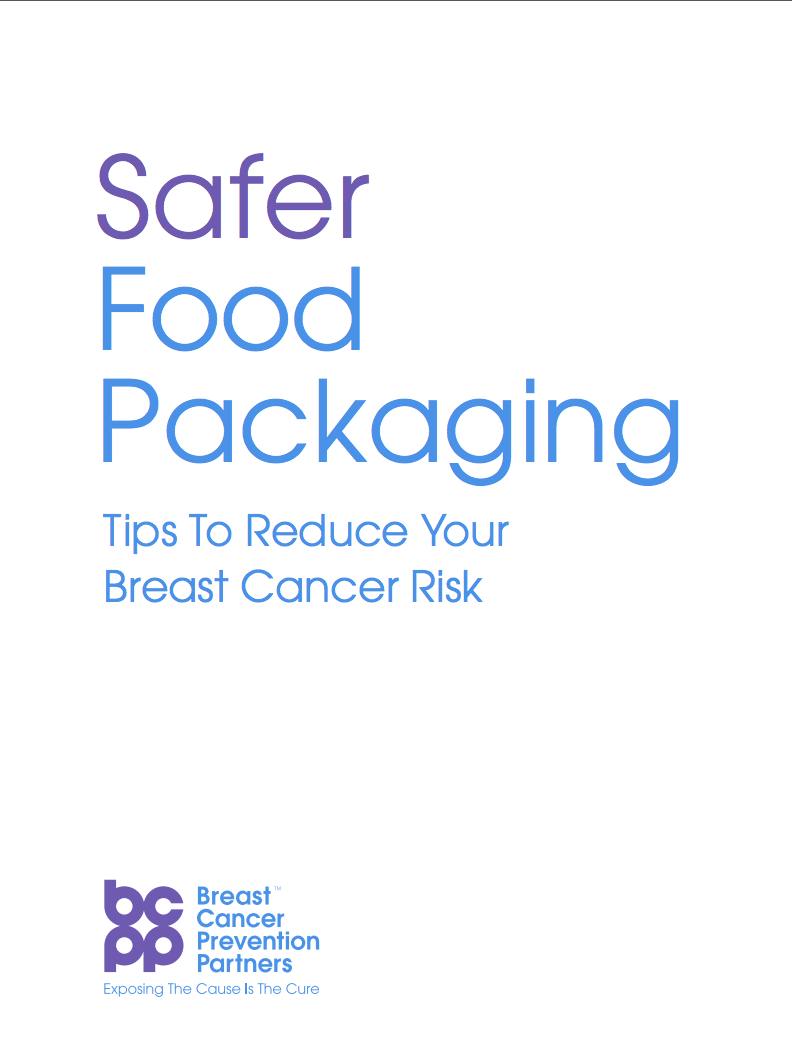Tips for Prevention
Food Tips
Kick the can, get out of plastic, and learn about more healthy ways to reduce your risk of exposure through food and food packaging.
Download our tip card
Tips for healthy, toxic-free food
1. Kick the can
Food and beverage cans are often lined with harmful substances like BPA. Some recent replacements for BPA linings appear to be safer; some contain other chemicals of concern, and for still others, the safety is unknown. Until manufacturers disclose the identity and safety of their BPA alternatives, look for fresh or frozen options. You can also look for beverages, soups, sauces, and tomato products in bottles or glass jars. Find out if BPA is used in your favorite food or drink packaging.
2. Get out of plastic
Plastics can leach harmful chemicals like BPA and phthalates into your food and beverages and then into you. Use glass, ceramic, and stainless steel food storage containers and water bottles. Never microwave plastic — even “microwave-safe” plastic can leach chemicals into food when heated.
3. Ditch Teflon(r) pots and pans
Some toxic compounds are used in non-stick cookware. While they keep food and stains from sticking, they stick around in the environment and our bodies for a very long time and have been linked to cancer. Switch to cast iron, ceramic, anodized aluminum cookware, and glass bakeware when it’s time to replace your old pots and pans. Prioritize replacing cookware used over high heat and pieces that are scratched.
4. Go organic and eat chemical-free
Organic produce is grown without harmful pesticides and herbicides. Choose locally grown organic fruits and vegetables from farmer’s markets or your grocery store. When we eat meat and dairy products, we also eat the residue of what those animals ate. Choose hormone-free beef and dairy to eliminate your consumption of pesticides and growth hormones that may increase the risk of breast cancer.
5. Eat low on the food chain
Plant foods have far lower chemical levels compared to animal foods, such as meat and dairy, where fat-soluble chemicals tend to accumulate. A Mediterranean diet high in fresh fruits and vegetables, whole grains, and healthy fats (avocados, nuts, and seeds), with smaller amounts of animal foods, is a proven disease prevention tool.
6. Limit red meat and processed meat products
Recent research shows increased evidence of a link between high red meat consumption around adolescence and later-life breast cancer. Processed meat is also recognized as a carcinogen. Choose lean meats and low-fat animal products. With kids, encourage healthy eating from an early age, including plenty of vegetables and fruits.
FEATURED VIDEO
BCPP: Exposing the Cause is the Cure
We're preventing breast cancer before it starts by eliminating our exposure to toxic chemicals and radiation.

